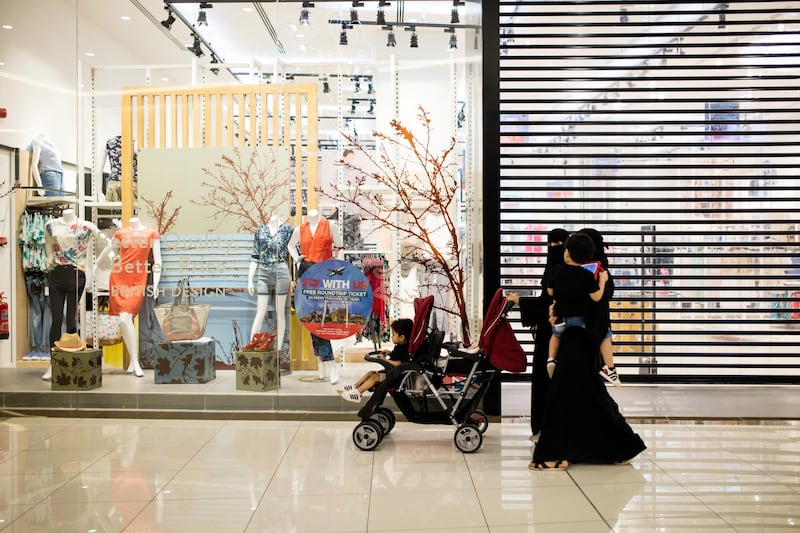The major Saudi Arabian retailer Jarir Marketing expects single-digit growth in sales in 2018, after a double-digit pace this year as it took market share from smaller rivals, said its chairman Muhammad Al Agil.
Government regulations pushing retailers of electronics to hire Saudi citizens instead of less costly foreigners hurt smaller companies that were less able to absorb the financial hit, helping Jarir increase its market share in the segment to 20 per cent in 2017 from 15 per cent, he said.
"Next year our projections will be modest because there's a huge base," Mr Al Agil said at the firm's headquarters in Riyadh. "We expect to have single-digit growth in sales next year."
The company, which also sells office supplies and books, posted nearly 19 per cent growth in net profit in the first nine months of 2017, fuelled partly by an increase in sales of smartphones as well as a change in the school calendar and lower non-operating expenses.
Next year's modest projection takes into account the likely impact from the introduction of a 5 per cent value-added tax in Saudi Arabia and other Arabian Gulf countries, Me Al Agil said.
___________
Read more:
Exclusive: Alabbar is open to further investments with Saudi sovereign wealth fund
Online retailer Noon signs exclusive partnership with eXtra to sell consumer electronics
___________
Despite the conservative outlook, Jarir aims to continue expanding its store network. It plans to open six to seven stores in Saudi Arabia and elsewhere in the region next year and hire 400 people, including 300 Saudis, Mr Al Agil said.
In 2019, it intends to open another five to seven stores. It currently has over 4,000 staff and more than 50 stores.
Although the company focuses on Saudi Arabia, it also wants to grow in Kuwait, the UAE and Bahrain.
Mr Ala Agil said the firm was doing feasibility studies to begin business outside the Gulf region and that Egypt was one of the countries it might target.
A slump in oil prices damaged Gulf economies severely in 2015 but consumer demand began to recover in 2016, partly because of the region's youthful demographics, as young people seek to get their hands on new gadgets and technology, Mr Al Agil said.
Another factor helping consumer demand within Saudi Arabia is an increase in the number of women joining the workforce, which boosts families' household incomes. This trend may accelerate when a ban on women driving is lifted next year.
"There is a lot of change in the economics of the oil producing countries, and that we think is an opportunity to take market share and to expand," Mr Al Agil said. "Even if the oil price is at US$40 a barrel or $50, I think we have no issue."






